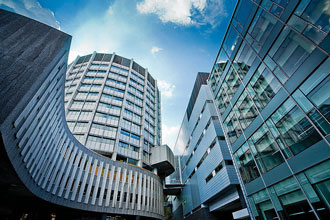
Editor’s Note: The following is a message from Dr. David Eidelman, Vice-Principal (Health Affairs) and Dean of the Faculty of Medicine to update people on the undergraduate medical education accreditation.
Dear Colleagues,
In February 2017, McGill’s MDCM program underwent a “limited site survey,” as required by the Committee on Accreditation of Canadian Medical Schools (CACMS). During this scheduled visit, CACMS representatives met with students, residents, faculty members, staff and leadership to evaluate our program relative to the last full CACMS survey in 2015. We have received the survey team’s report, which we are pleased to share with you.
The outcome of the February visit is positive. On page 7 of the report, you will see we have been rated “satisfactory” or “satisfactory with a need for monitoring” for all elements originally cited as deficient in June 2015, except one.* The element rated “unsatisfactory” pertains to wireless access at two of our clinical sites, which has since been addressed. These results are very encouraging.
It is important to note that the survey team’s report does not represent a decision by the CACMS on the MDCM program’s accreditation status. It states the survey team’s findings. We anticipate a final decision from the CACMS in June 2017. In the meantime, we remain cautiously optimistic. Our work, of course, is ongoing, until we complete the implementation of all actions and incorporate the improvements and metrics into our continuous quality improvement plan.
The results at this juncture are due to the tremendous commitment to academic excellence of countless McGillians, directly or indirectly involved, on campus and in our clinical settings, especially our students. The encouragement and loyal support of our alumni and friends have also been crucial. Thank you, all.
I would also like to acknowledge the CACMS limited site survey team for their commitment and their investment of time and effort in the review of our MDCM program.
*Ratings are based on three possible outcomes: “satisfactory,” “satisfactory with monitoring” or “unsatisfactory.”
Sincerely,
David Eidelman, MDCM
Vice-Principal (Health Affairs)
Dean of the Faculty of Medicine
